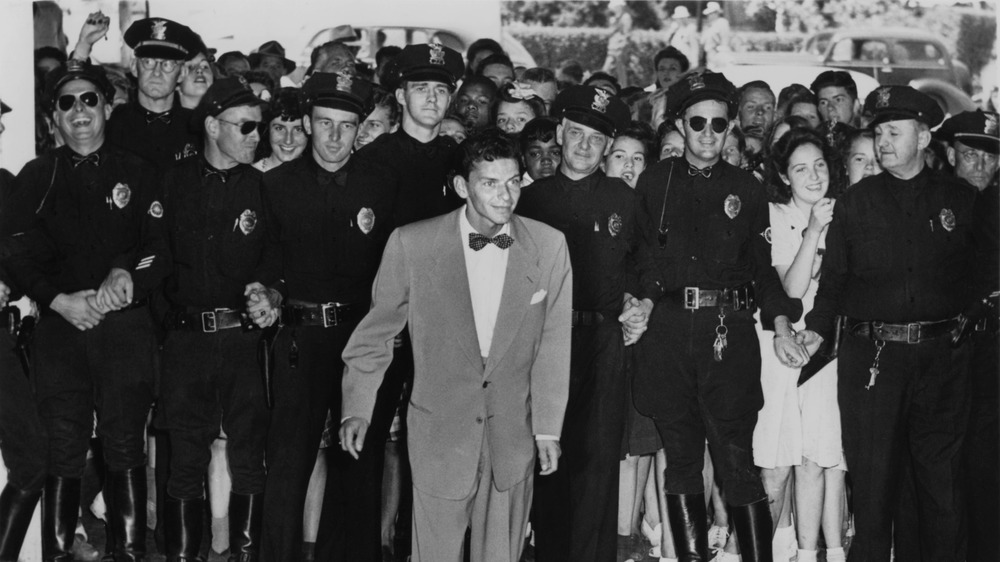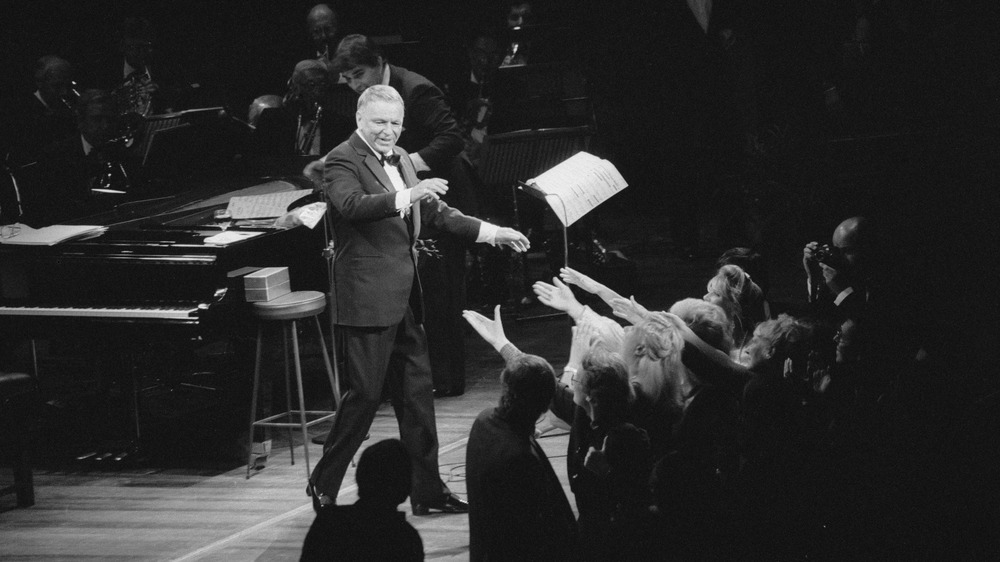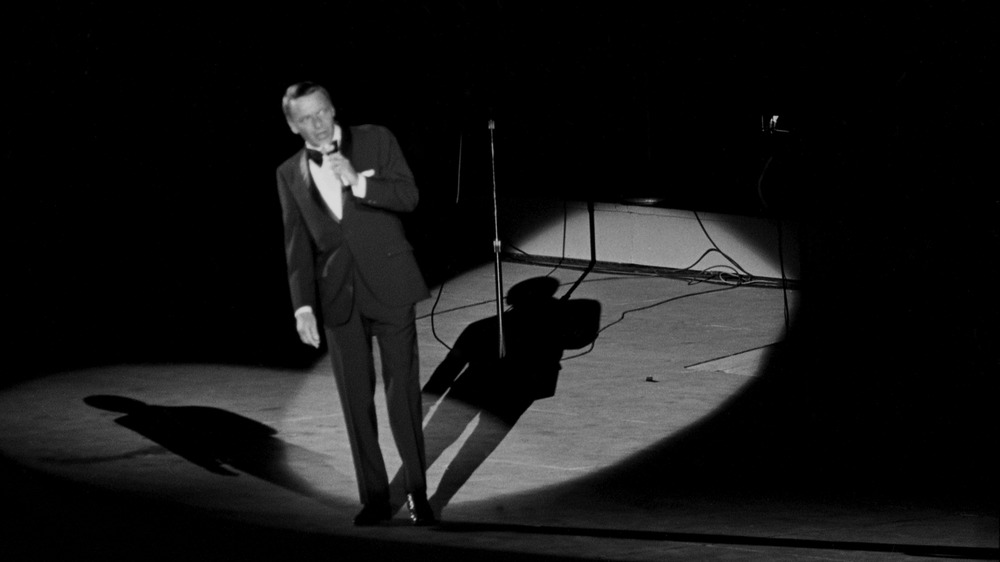Why The FBI Monitored Frank Sinatra
There is a dark side to every glitzy American success story, and that of Frank Sinatra, described by music critic Robert Christgau as "the greatest singer of the 20th century," is no exception. So much so that when Sinatra died in 1998 at the age of 82, it was revealed that the Federal Bureau of Investigation had kept a file on the world-famous crooner for more than 40 years, totaling some 1,300 pages, reported the Washington Post. (He wasn't the only one; Marilyn Monroe caught their attention, too.)
Sinatra first caught the attention of the FBI all the way back in 1944, just as he was rising to the heights of newfound fame, thanks to a letter the Bureau received from Walter Winchell, a well-known gossip columnist, which claimed that the heartthrob singer had paid $40,000 to dodge the draft that would have forced him to serve in World War II. After a preliminary investigation, the Feds found that the claim was false, and that Sinatra had been legitimately excluded from service because of a punctured eardrum and "psychological issues," according to History.
The rumors of Sinatra's draft-dodging past stuck with him, however, occasionally threatening to damage his career. But another consequence of Winchell's fallacious tip-off was that it meant that Sinatra wound up with an active FBI fine, meaning he would become a legitimate subject of investigation throughout the decades in which his fame grew.
Frank Sinatra's mob connections
Born in New Jersey, Sinatra was to become an icon of the East Coast Italian-American community of which he was a part. His humble background was played upon by his publicist, George Evans, according to the biographer Kitty Kelley.
Sinatra's enormous visibility in the middle of the 20th Century led to the FBI monitoring him for his supposed links to the East Coast mob and organized crime emerging at the time within the Italian-American community. Though there was never any confirmation in the Sinatra file that the singer was directly involved in gang activity, it is undoubtedly true that a good number of his friends and associates were known "criminals and hoodlums," as the files describe them, such as Chicago mob boss Sam Giancana, and Detroit mobsters Anthony and Vito Giacalone. Sinatra even performed special concerts for known gangsters. Retired FBI agent Sam Ruffino said, "He didn't make any apologies for it. Those were his friends. The fact that they were known hoodlums and murderers didn't matter to him. He didn't care, he was going to hang around with who he wanted to hang around with," according to History.
One other detail that emerges from the files is perhaps the most interesting of the lot: around 1950, Sinatra offered himself to the FBI as an informant. It is now believed that this was an attempt to limit the rumors of his mob connections, but the FBI never took him up on his offer.
Frank Sinatra's 'suspicious' sympathies
Sinatra was never prosecuted for any of his alleged connections to organized crime, though his file continued to grow as the FBI compiled more details about his sympathies and involvement with groups that the Bureau at the time considered to be suspicious. Some of the activities that the FBI considered to be "of interest" arguably tell us just as much about the political leanings and biases of the day as they do about Ol' Blue Eyes himself.
According to the Washington Post, two organizations with which Sinatra was associated made him a continuing person of interest for the FBI: the American Crusade to End Lynching, and the American Society for Cultural Relations with Italy. Both of these sound like perfectly respectable groups for which to be an activist, but at the time, associating with such organizations could be seen as evidence that you also sympathized with communism. In the early 1950s in particular, the McCarthy era could make supporting such progressive causes a dangerous occupation.
In the end, there was nothing incriminating in the FBI's file on Sinatra. As the academic Gerard Meyer wrote for Science and Society (posted at Jstor), "Sinatra's FBI dossier reveals a dismaying situation ... At no time does it contain anything that even hints at an activity disallowed by the Bill of Rights." What it demonstrates instead is the level of government attention a figure of Sinatra's stature could attract in the 20th Century, for no good reason at all.


